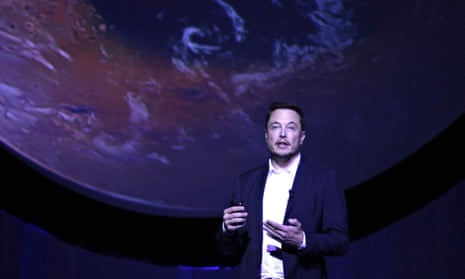For science fiction writers ranged across the astronomical distance that separates Edgar Rice Burroughs and Kim Stanley Robinson, Mars has been a theatre of dreams, variously realistic. Now the tech billionaires Elon Musk and Jeff Bezos are competing to see who will make it first there in reality. Bezos is spending a billion dollars a year out of his Amazon stock to keep his project going; Musk has announced he wants the first manned private flights to set off by 2026. He hopes that the price can be brought down from around $10bn to $200,000 and that reusable spaceships will ferry a million people to Mars over a period of decades until they can start a self-sustaining civilisation there. This, of course, is only the beginning: once the technology of reusable spacecraft fuelled by methane made from raw materials found at their destination has been mastered, Musk foresees no limit to their explorations.
He acknowledges a variety of technological challenges and immense financial hurdles. Although he is already so rich that he can see no point to getting even richer except to fund this project, not all his resources would see it through. The question, though, is whether this is a dream that the rest of us should buy into. There are technical and ethical challenges unmentioned in his boosterism.
The first is that we don’t know whether Mars has already got any primitive life on it. The second is the temperature when we get there. Living at -120C is not an attractive prospect. But the real problem is very simply put: the whole project is a fantasy of escape from mortality, just as much as the other great Silicon Valley fantasies of freezing bodies and uploading minds into computer programs to attain a disembodied and omnipotent immortality. It is science in the service of a comforting fiction. The universe is vast, but nowhere in it can we live without death and necessity.
